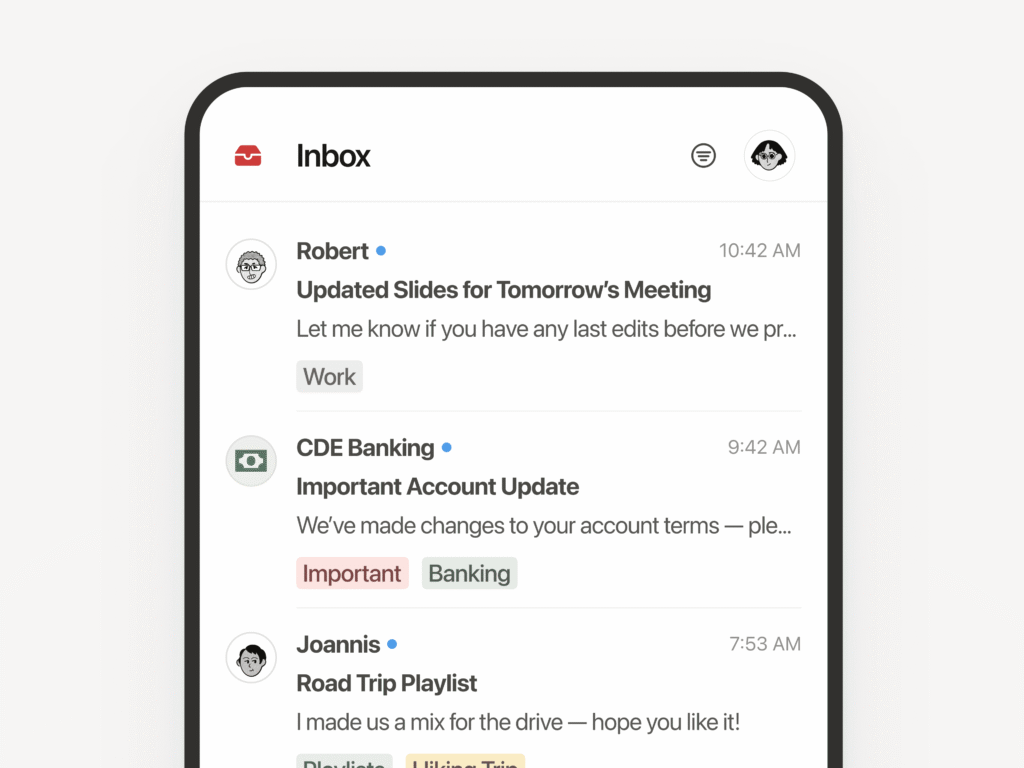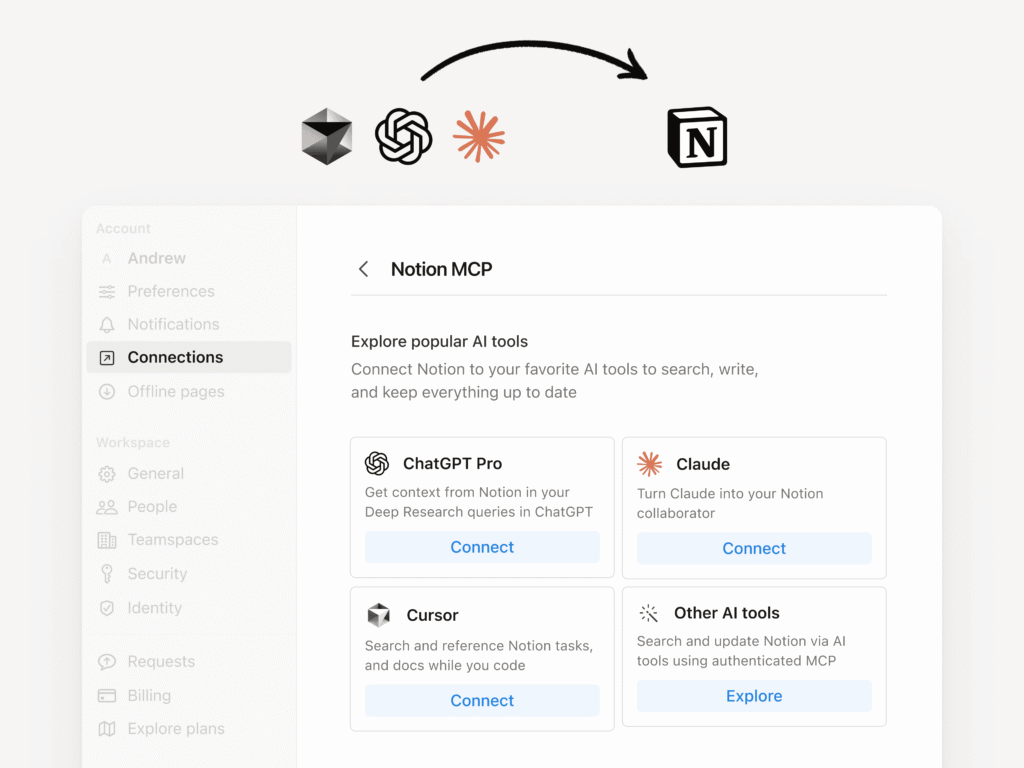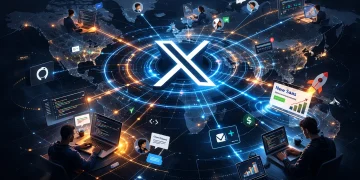Notion has just launched the feature its users have begged for since day one. After years of promises and delays, the productivity platform finally lets you capture ideas, edit pages, and keep working without an internet connection.
The August 2025 update drops three major features that address Notion’s biggest weaknesses. Users can now work offline, manage tasks directly in Notion Calendar, and connect AI tools like ChatGPT and Claude through a new protocol system.
Your Ideas No Longer Wait for WiFi
Notion has faced criticism for requiring constant internet connectivity. Users can now download pages for offline access through a new dashboard in Settings → Offline.
Premium subscribers get automatic downloads for their Recent pages and Favorites. Free users must manually select which pages to download. Essential blocks work offline, with more features coming in future updates.
“This is the feature everyone’s been waiting for,” Notion acknowledged on their release page, referencing Reddit discussions where offline mode topped user request lists for years.
The feature works across desktop and mobile apps, letting users create new pages and edit existing content without connectivity. Changes sync automatically once internet returns.

Notion Mail Lands on iPhone
Notion expanded its email client to iOS devices, bringing AI-powered inbox management to mobile users. The app automatically sorts messages, drafts replies, and schedules meetings using familiar Notion-style organization.
The mobile version includes customizable swipe gestures, filtered inbox views, and works offline alongside the main Notion app. This addresses a key gap in Notion’s mobile productivity suite.
Built by the team behind Skiff (which Notion acquired in 2024), Notion Mail challenges traditional email clients with database-style organization and AI assistance. Users can create views with filters, sorting, and grouping similar to Notion databases.

Calendar Gets Task Management Powers
Notion Calendar now connects directly to Notion databases, letting users create and manage tasks alongside calendar events. The integration transforms the standalone calendar app into a comprehensive time and task management system.
Users can connect any Notion database with date fields to Calendar, then create, schedule, and complete tasks within the calendar interface. This unified approach eliminates switching between separate task and calendar apps.
The feature addresses a common productivity challenge: managing tasks and schedule in one place. Teams can now view project deadlines, personal tasks, and meetings in a single timeline.

AI Tools Get Direct Notion Access
Notion introduced Model Context Protocol (MCP) support, allowing ChatGPT, Claude, and Cursor to read and write directly to Notion workspaces. The integration enables AI tools to create pages, update tasks, and reference existing content in real-time.
Users can now prompt AI assistants to create meeting notes, update project status, or pull information from their Notion databases without manual copy-pasting. The system maintains security through controlled access permissions.
Early adopters report using the integration for automated project updates, AI-generated meeting summaries, and research compilation directly into their Notion systems. The feature bridges the gap between AI assistance and actual workspace management.

These updates affirms Notion’s evolution from a note-taking app to a complete productivity ecosystem. The company addresses its three biggest user complaints which are offline access, mobile limitations, and integration friction.
For teams already invested in Notion’s ecosystem, these updates eliminate common workflow interruptions. Remote workers gain reliable offline access, mobile users get better email management, and AI users can automate more workspace tasks.
Technical Implementation and Limitations
The offline mode uses selective downloading rather than full workspace sync. Users must anticipate which pages they’ll need offline, limiting spontaneous access. Some features like embeds, forms, and real-time collaboration remain online-only.
The MCP integration requires technical setup for individual users, though Notion provides step-by-step guides. Business users may need IT support for proper configuration and security compliance.
Notion Mail currently supports only Gmail/Google Workspace accounts, restricting adoption for users with other email providers. The company hasn’t announced plans for broader email service support.













